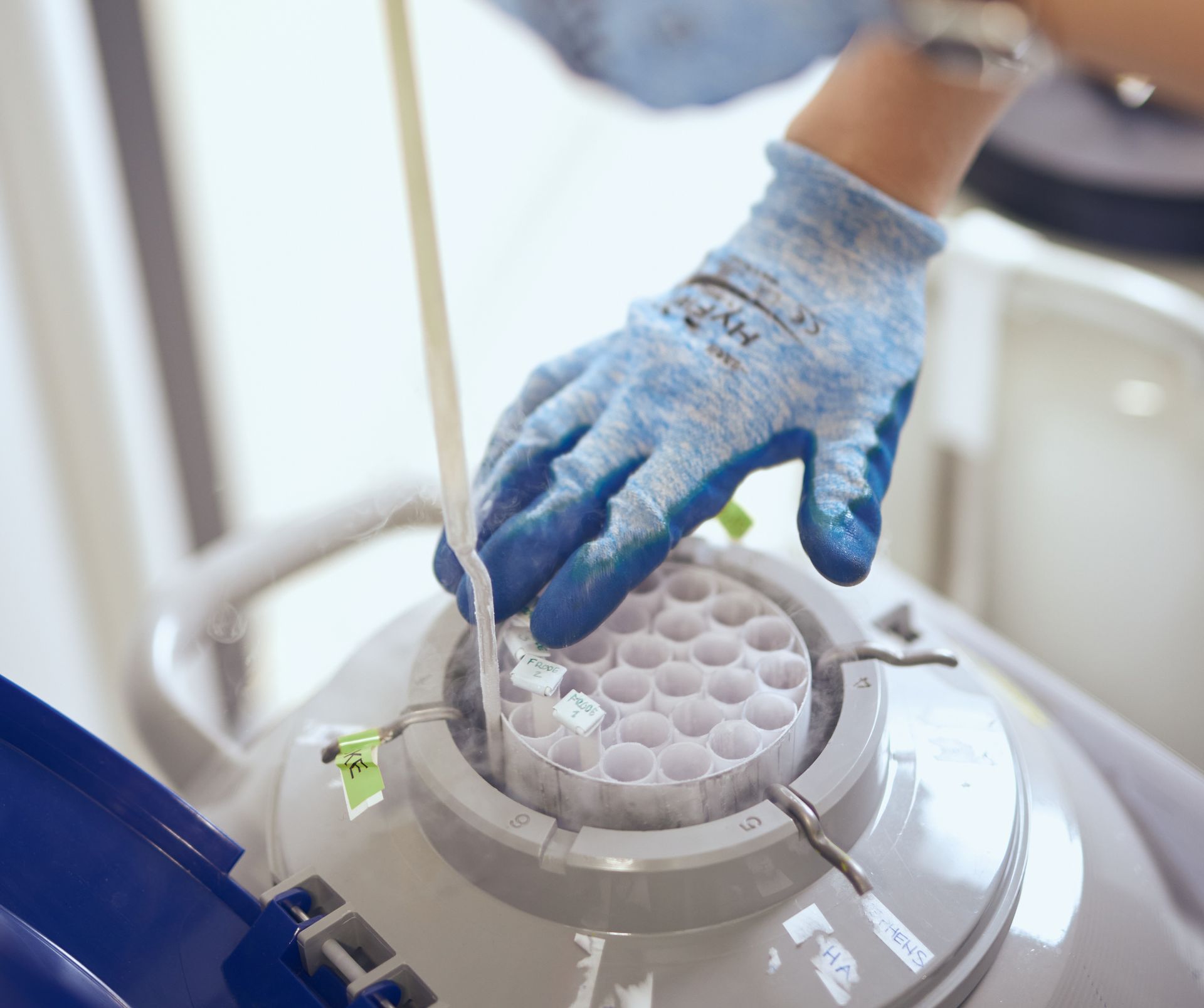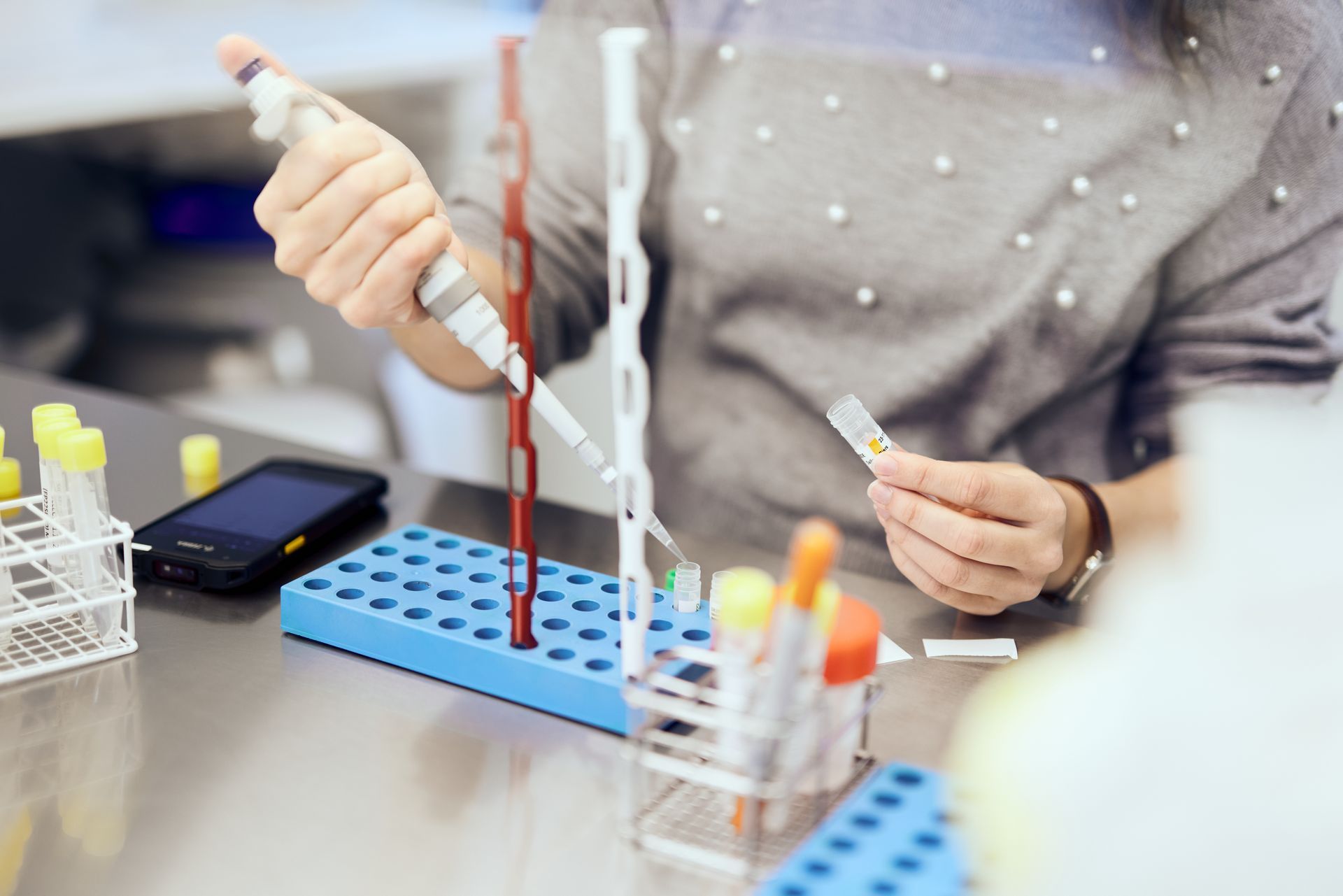Treatment of Male Infertility
Infertility is a complex and emotionally challenging issue that affects millions of couples worldwide. There sometimes seem to be a misconception that infertility is mainly a female issue, but for 40% of infertile couples, male infertility is a contributor to difficulties in conceiving. Fortunately, advances in science and technology have opened new doors if you are looking for solutions to male infertility. In this blog post, we'll explore the various treatments and strategies available to address male infertility.
Understanding the Causes of Male Infertility
Infertility in men is generally defined as the inability to become pregnant after one year of unprotected sexual intercourse. It can be caused by a wide range of factors, including:
- Low Sperm Count: A low sperm count, also known as oligospermia, reduces the chances of sperm reaching and fertilising the egg.
- Poor Sperm Motility: Sperm must be able to swim effectively to reach the egg. Poor and low sperm motility can hinder this process.
- Abnormal Sperm Morphology: Sperm with structural abnormalities may struggle to penetrate the egg.
- Ejaculatory Issues: Conditions like retrograde ejaculation, where semen travels backward into the bladder instead of out the urethra, can affect your fertility.
- Hormonal Imbalances: Hormonal imbalances, including low testosterone levels, can impact your sperm production.
- Obstructions: Blockages in the reproductive tract can prevent sperm from being ejaculated.
- Excessive use of Steroids: Prolonged use of anabolic steroids can damage your sperm production because they disrupt the natural balance of hormones in your body. It can take many years before your sperm production normalises - if it ever does.
- Genetic Factors: Some genetic conditions can also lead to infertility.
You can read more about the causes and symptoms of male infertility here: Exploring the Causes of Male Infertlity.
How to Prevent Male Infertility
Some causes of infertility are not preventable. These include any anatomical issues or genetic causes men may have. But if your infertility is caused by lifestyle choices, or you have a treatable medical condition, luckily, there are actions you can take that might help improve your sperm quality and preserve your fertility.
Sperm Freezing
One great way to preserve your fertility is to freeze your sperm. The global increase in male infertility and the wish to preserve the possibility to have children later in life make it a good option for more and more people. Your sperm quality declines slightly with age and freezing your sperm while you’re young is a great way to save some of your high-quality sperm for future use.
Sperm freezing can also be a good option if you have a hazardous occupation, or if you’re about to undergo a surgery that may impair your fertility, like a cancer treatment or a gender transition.
At Born, we can store your sperm safely and effectively via cryopreservation. Read more about our different storage options to help you keep your sperm safe for future use: Everything you need to know about sperm freezing.
Treatment for Male Infertility
With modern technology, the number of treatment options for male infertility has expanded. Sometimes, an exact cause of male infertility can't be found, but even if an exact cause isn't clear, luckily, there are still a lot of treatments, procedures, or strategies that might help you, like:
- Keep on Going: You might not need any infertility treatment. If you have a lower sperm count, natural conception can still be on the table, especially if your partner doesn't have any fertility issues. It might just take a little more time and patience.
- Lifestyle Modifications: Some simple lifestyle changes might make a significant difference if you’re struggling with male infertility. Maintaining a healthy weight, quitting smoking, limiting alcohol consumption, and managing stress might improve fertility.
- Medications: Certain medications can cause hormonal imbalances and negatively affect your sperm production and your fertility. If medication for a medical condition is contributing to your infertility, your doctor might be able to find alternative treatments.
- Surgery: Surgical procedures can remove obstructions or correct issues like varicoceles, which are dilated veins in the scrotum and in cases where sperm cannot be naturally ejaculated, it can sometimes be retrieved directly from the testicles using sperm retrieval techniques.
- Assisted Reproductive Technologies (ART): If the treatment of your infertility is unsuccessful, assisted reproductive technologies may help you and your partner conceive. At some point you may learn that proceeding with assisted reproductive techniques like IUI (Intrauterine insemination), IVF (In vitro fertilization), or ICSI is appropriate in your situation.
Fertility Treatment with Donor Sperm
In cases where your sperm is not viable for conception naturally or through fertility treatment, donor sperm can provide a valuable alternative. Opting for a sperm donor is a great way to keep that special genetic bond between your partner and your child and any future siblings. Plus, donor sperm can be used in a wide range of fertility treatments.
Conclusion
Lots of people are struggling with infertility problems, and male infertility is a complex issue. However, with the right help and support, many couples can overcome it and achieve their dream of parenthood. If you are considering using donor sperm for your fertility treatment, don't hesitate to reach out. We are here to help and happy to answer any questions on your mind.
Other blog posts

In 2024, More and More Women Become Single Mothers by Choice, but They Still Meet a Lot of Prejudice

Find Us At
Rosensgade 11, 8000 Aarhus C - Denmark HQ
Other Locations
Boulevarden 6, 1. st. floor, 9000 Aalborg
Ole Suhrs Gade 19, Ground floor, 1354 Copenhagen
Havnegade 18, 1. st. floor, 5000 Odense









